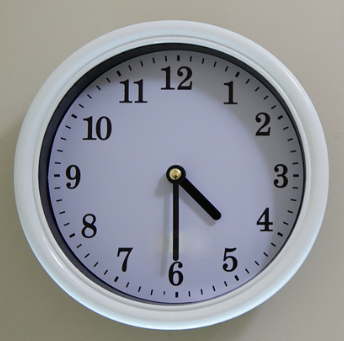
When it comes to mediation, the time and resources you invest can significantly impact the outcome. While a half-day mediation might seem like a more efficient or cost-effective option for some cases, there are scenarios where a full-day mediation can offer the best opportunity for settlement. Let’s explore why a full-day mediation is often worth the extra commitment.
When To Go For a Full-Day Mediation?
Deciding between a half-day or full-day mediation can be tricky. Certainly, a full-day mediation requires more time and resources. However, in many cases, this investment proves worthwhile. Here’s when opting for a full day makes the most sense:
Complex Cases
If the dispute involves multiple issues or complex factors, a full day allows for a thorough exploration and a better chance to resolve everything in one go. What might seem like a straightforward case could be far more complex when viewed from the other side.
Challenging Parties
For cases where parties have strong disagreements or unrealistic expectations, a half-day session may only allow for surface-level discussions and leave these expectations unchallenged and unresolved. In contrast, a full day provides the time needed to to delve deeper into the parties’ views, challenge misconceptions, work through these issues and shift perspectives. A full-day session often leads to much more engagement from everyone involved. As the day goes on and discussions continue, participants start to see the real benefits of settling, like closing the case and moving on.
High Stakes
When the outcome has significant financial or emotional implications, a full day helps ensure all aspects are carefully considered, increasing the likelihood of a settlement. For example, as I discuss in my post, “Achieving Success in Mediating Catastrophic Injuries,” plaintiffs may need more time to work through issues before they are ready to reach or finalize a proposed settlement.
Detailed Negotiations
If a lot of back-and-forth discussions are expected, time is needed to refine offers. A full day gives everyone the space to negotiate effectively.
Future Follow-Ups
Building momentum and alignment during the day makes it easier to settle before the mediation concludes. Even if it does not result in an immediate settlement, it often brings the parties significantly closer to an agreement and may set the stage for successful follow-up negotiations. Many times, settlements are reached in the weeks following a full-day mediation, as the momentum and clearer understanding gained during the day help everyone see where they can compromise and finalize terms of a deal.
When A Half-Day Mediation Makes Sense
It’s important to note that not all cases warrant a full-day mediation. Simple, straightforward cases with low value or where no financial offers are anticipated might be well-suited for a half-day session. For these types of cases, the efficiency of a half-day mediation can be appropriate and cost-effective, addressing the essential issues without requiring the extensive time investment of a full-day mediation.
Comparing Full-Day Mediations to Global Mediations
Full-day mediations can also be compared to global mediations, where resolving multiple disputes or issues in one session can be advantageous. Global mediations, as discussed in my post, “Why Do Global Mediations Make Sense?”, often bring efficiency and comprehensive solutions to complex cases involving multiple parties or issues. Global mediations give everyone a complete view of all the disputes and help tackle related issues all at once. This approach is similar to what you get with a full-day mediation. It allows more time for a thorough discussion of the details and helps address all the connected issues in a clear and organized way. By talking things through in depth, solutions that cover everything can be designed in one go. A thorough approach often leads to a higher chance of reaching a settlement because it helps everyone see all the angles and find common ground more effectively.
Conclusion
While a full-day mediation involves a greater commitment of time and resources, it often results in a more thorough exploration of the issues and a higher likelihood of settlement. By allowing ample time for discussion, reflection, and negotiation, the potential for a resolution that benefits all parties involved is enhanced. For complex and high-stakes cases, like catastrophic injuries or disputes with multiple connected issues, a full-day mediation is often a game-changer. Some parties need more time to reflect and fully grasp the implications of their decisions, which a half-day simply can’t provide. A full day offers the space to dive deep, work through details, and come to a resolution that a shorter session might miss.
ABOUT THE AUTHOR

Marshall Schnapp, Toronto / GTA Mediator
Marshall Schnapp, BA, JD, LLM (ADR) has been resolving disputes for over 10 years as a mediator and has extensive experience in adjudication as well. Clients consistently recommend Marshall for his friendly, determined attitude and practical expertise in resolving thousands of cases.Get in touch with Marshall by email at marshall@schnappmediation.com or by telephone (647) 250-7216 today to set up a consultation, and see why he is the right mediator for your next file. For booking availability, please visit https://schnappmediation.com/marshalls-calendar/ or contact Lacey Day at admin@schnappmediation.com or (647) 250-7216.

